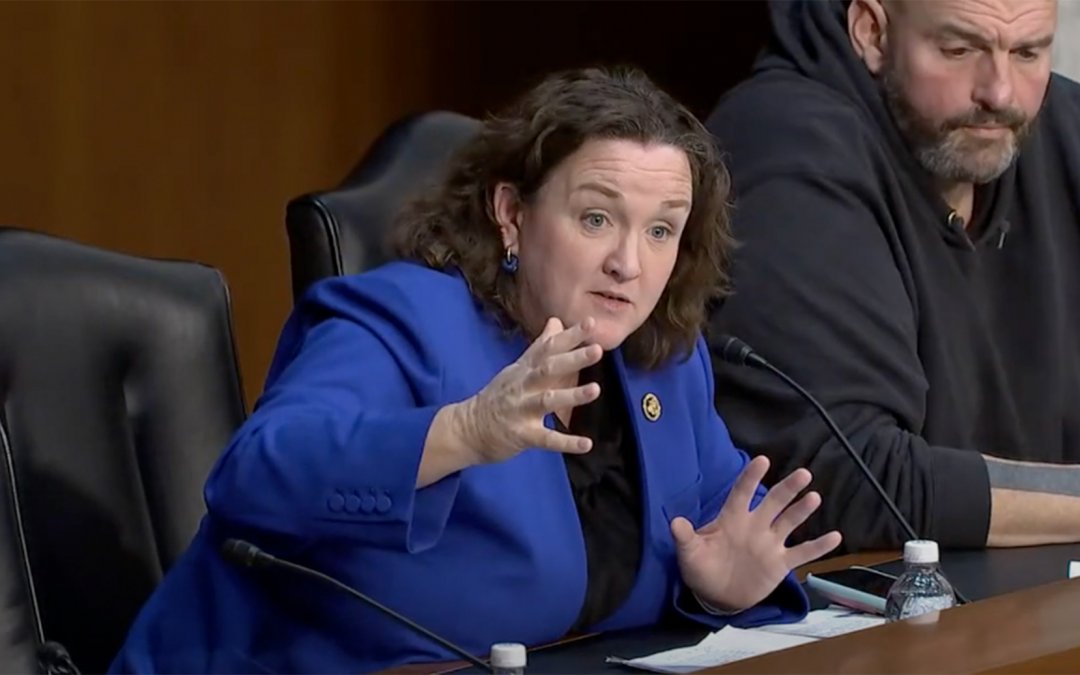WASHINGTON – Experts push for federal action addressing restrictive local zoning that has stymied affordable housing availability at a Joint Economic Committee hearing on Wednesday.
Local rules prohibit building anything other than single-family detached homes in 75% of residential land in many American cities, the New York Times’ Upshot reported in 2019.
“Single-family homes with yards require more land per home than other structures, and therefore are more expensive to rent or buy,” testified Jenny Schuetz, a senior fellow at Brookings Metro.
Primarily, the federal government should look to supplement local legislative initiatives to increase construction of denser housing, said Schuetz.
“Ultimately, state and local governments have to do this, but the federal government can provide resources and support,” Schuetz said in an interview with Medill News Service.
Lawmakers and attendees suggested a lack of alignment between different levels of government has hampered progress.
“The federal government blames the states, the states blame the counties, the counties blame the localities, and then back up the chain we go – How many of you have seen this movie?” asked Rep. Katie Porter (D-Calif.) as she demanded accountability from her fellow government members.
Researchers at Freddie Mac estimated that, as of 2020, the U.S. had a housing supply deficit of around 3.8 million units. Schuetz referenced a similar figure at the hearing, as well as in another hearing on housing supply in which she testified in September.
A bipartisan tax deal announced earlier this week would increase a tax credit for low-income housing, but Porter said it’s just not enough to close the housing supply deficit. The deal still has to pass both houses, but congressional leaders have said they are hopeful it will be enacted.
“After the housing market collapse of 2008, new housing supply never recovered to keep up with demand,” said Sen. Martin Heinrich (D-N.M.), chair of the joint committee.
Reports show that the homeless population rose 12% in 2023 from the previous year. That year, the U.S. Department of Housing and Urban Development (HUD) reported the highest count of people experiencing homelessness on a single night since 2007, when the HUD started tracking the data.
“Exclusionary zoning adds to this problem, placing restrictions on where people can live and the types of housing they can live in, often enmeshed with discriminatory practices that have left a legacy of unequal opportunity,” Heinrich added.
Jenn Lopez, founder of Project Moxie, an affordable housing consulting firm, appealed to the committee, asking for more federal resources and support of local land use reform.
“I urge you to consider pairing these two practices to bolster the economy,” said Lopez. “When we provide affordable housing, we house our local workforce, create jobs and stabilize our communities.”
However, zoning reform is controversial. When Alexandria, Va., eliminated single-family zoning in October, it saw intense opposition from its residents. Colorado has been attempting to enact statewide inclusionary zoning laws only to encounter local resistance and petitions that push city councils to repeal approved reforms.
In his testimony, Falim Furth, senior research fellow at the Mercatus Center, a libertarian think tank, where he directs the Urbanity Project, noted that both Vermont and Montana have successfully banned local single-family occupancy zoning.
“These ambitious extensive limitations of local regulatory authority received supermajority support from legislators in both parties,” said Furth.
And residents can be galvanized to support changes to their local laws, added Tobias Peter, co-director of the Housing Center at the American Enterprise Institute, the center-right leaning think tank.
“If you frame it around where your kids and grandkids are going to live, that seems to have an impact,” said Peter.
Zoning law changes now often require a groundswell of local support and the united force of both federal and local jurisdictions, emphasized these advocates.
“Local and state governments are stepping way into this space and bringing their checkbooks, inviting the federal government,” Lopez told Medill News Service. “It’s time to make that next leap, that next major investment in our inventory as a country.”


